In Illinois regulates the use of AI by judges and lawyers
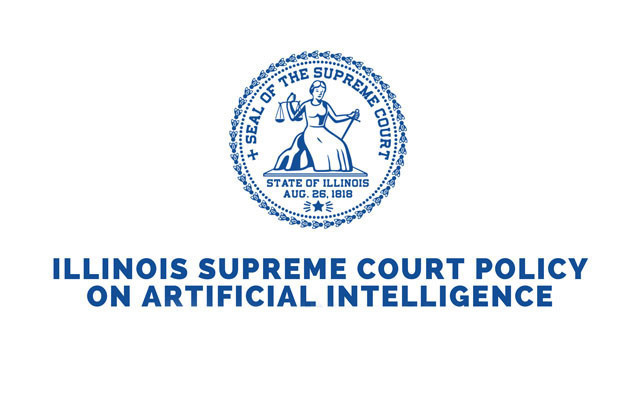
The use of artificial intelligence in court is allowed even without disclosure of this fact, but subject to compliance with legal and ethical standards. At the same time, lawyers, judges and self-represented parties are responsible for the final product of their work.
On January 1, 2025, the Illinois Supreme Court Policy on Artificial Intelligence will come into effect.
The document states that the integration of AI into court operations is becoming more widespread, offering potential opportunities for increased efficiency and improved access to justice. However, it also raises critical questions about the authenticity, accuracy, bias, and integrity of court documents, evidence, and decisions. Understanding the capabilities and limitations of AI technologies is important for the judiciary.
Courts will be closely monitoring AI technologies that may threaten due process, equal protection, or access to justice. Unconfirmed or intentionally misleading content generated by AI that promotes bias, harms litigants, or impedes truth and decision-making will not be tolerated.
The use of AI by litigants, attorneys, judges, court reporters, legal advisors, and court staff should not be discouraged and is permitted, provided it complies with legal and ethical standards. Disclosure of the use of AI in court filings is not mandatory.
The Rules of Professional Conduct and the Code of Judicial Ethics are fully applicable to the use of AI technologies. Lawyers, judges, and self-represented parties are responsible for the final product of their work. All users should carefully review AI-generated content before submitting it in a court proceeding to ensure accuracy and compliance with legal and ethical obligations. Before using any technology, including generative AI applications, users should understand both the general capabilities of AI and the features of specific tools.
The Court recognizes the need to use AI in a safe manner, respecting privacy laws and regulations. AI programs should not jeopardize sensitive information such as confidential communications, personal data, protected health information, justice and public safety data, security-related information, or data that violates judicial ethics standards or undermines public confidence.
The Illinois Supreme Court promises to regularly review the policy as these technologies evolve, prioritizing public confidence in the judicial system and the administration of justice. Judges remain ultimately responsible for their decisions, regardless of technological advances.
The Delaware Supreme Court reportedly issued a similar policy for judges and other judicial officials in October, and other state and federal courts have created committees and task forces to study the impact of AI on the judiciary.
Popular news

Discussion
Why lowering the age of marriage lacks legal logic
Although until 2012 there was a provision in family law that allowed children to marry from the age of 14 under certain circumstances, its return to Ukrainian law would contradict international obligations and the logic of criminal law.

Self-government
A report on Ukrainian advocacy was presented in the European Parliament
Can a shadow report on advocacy replace the political framework of the Roadmap on the rule of law with demands for the restructuring of self-government? Where is the line between accountability and the seizure of institutions? And how can we respond to narratives with data rather than impressions?
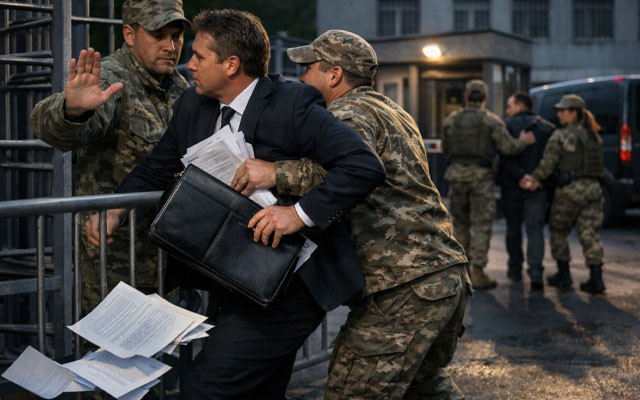
Guarantees of the practice of law
Proceedings opened following attack on advocate in Dnipro
The Committee for the protection of advocates' rights and guarantees of legal practice of the UNBA appealed to law enforcement agencies in connection with an advocate's report of an attack while performing his professional duties. The information was entered into the Unified Register of Pre-trial Investigations and a pre-trial investigation was initiated.
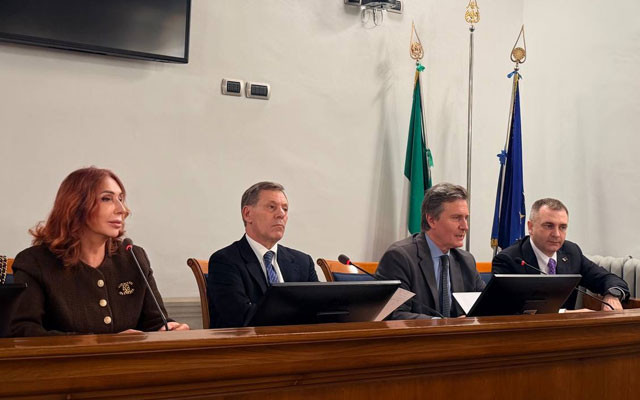
Interaction
«With us — to Europe»: Italian advocacy supports UNBA initiatives
On January 30, a meeting was held in Rome between a delegation from the Ukrainian National Bar Association and the National Bar Council of Italy (Consiglio Nazionale Forense, CNF) on the standards and practices of the legal profession and their significance for Ukraine's European integration process.
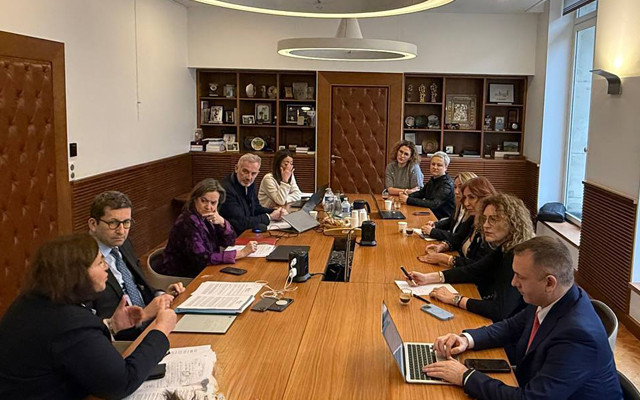
Interaction
France confirms cooperation with UNBA on reforms in the field of the rule of law
On January 29, a working meeting between representatives of the Ukrainian National Bar Association and the French National Bar Council (Conseil National des Barreaux, CNB) took place in Paris.
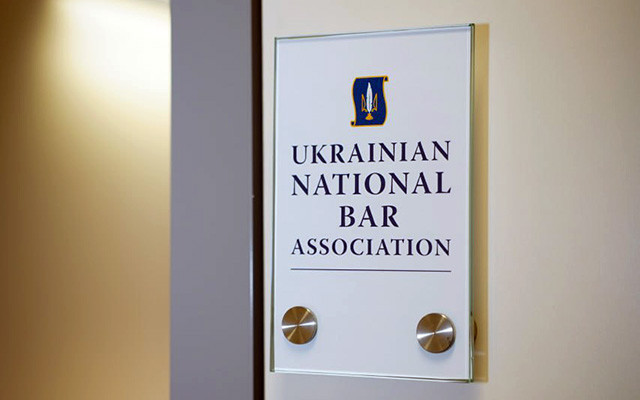
Abroad
UNBA office opens in EU capital
To strengthen the institutional presence of the Ukrainian advocacy community at the European level, an office of the Ukrainian National Bar Association has been opened in Brussels (Belgium), which will serve as a permanent platform for dialogue with European partners.
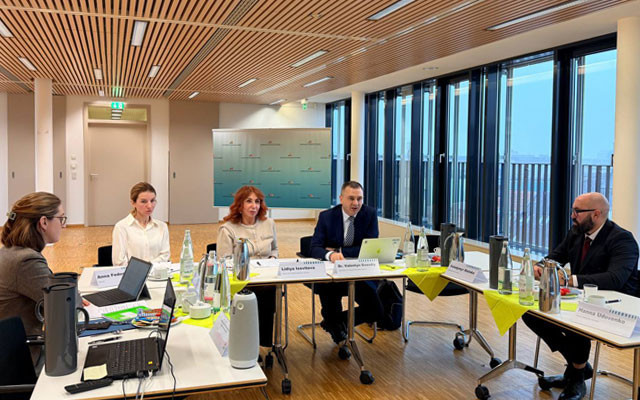
Interaction
UNBA and BRAK discussed European integration priorities and regulation of the profession
On January 26, a meeting was held between representatives of the Ukrainian National Bar Association and the German Federal Bar Association (Bundesrechtsanwaltskammer, BRAK).
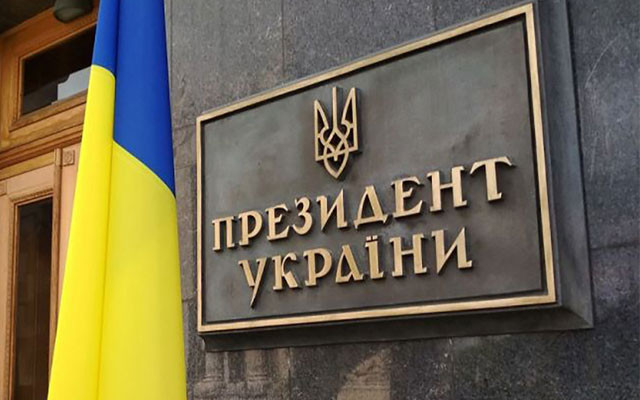
Guarantees of the practice of law
The President was urged to sign the law on strengthening guarantees for advocacy activities
The professional community of advocates called on Ukrainian President Volodymyr Zelenskyy to sign Law No. 4547-IX, which strengthens guarantees for advocates' activities, in particular by introducing liability for identifying an advocate with a client.
Publications

Volodymyr Matsko Extradition as a systemic form of rights violations

Victoria Yakusha, Law and Business The anti-corruption vertical cannot «take care» of the Bar as an institution, - acting head of the HQDCB

Censor.net Protecting advocates – protecting justice: addressing concerns about the new law

Ihor Kolesnykov A BRIEF SUMMARY REGARDING THE APPLICATION OF THE ORDER ON EXTENDED CONFISCATION IN LATVIA REGARDING FINANCIAL ASSETS OF…

Valentyn Gvozdiy WORKING IN A WAR ZONE

Lydia Izovitova Formula of perfection

Sergiy Vylkov Our judicial system is so built that courts do not trust advocates

Iryna Vasylyk Advocacy in the proclamation of Independence of Ukraine
